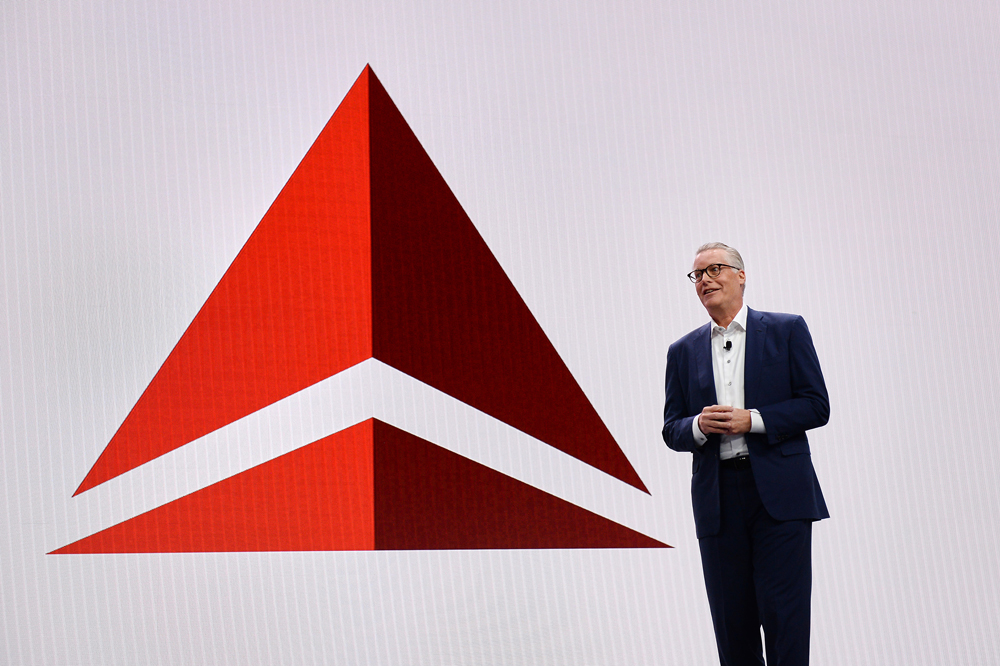Our live coverage of the global coronavirus pandemic has moved here.
June 3 coronavirus news
By Joshua Berlinger, Adam Renton and Laura Smith-Spark, CNN
Brazil's Rio de Janeiro reports record number of deaths in a day
From CNN's Rodrigo Pedroso in Sao Paulo
The Brazilian state of Rio de Janeiro reported a record number of coronavirus-related deaths in a day, according to Rio's state health secretary.
On Wednesday, the state announced 324 Covid-19 deaths in the last 24 hours, the highest daily jump for Rio, bringing the state's total to 6,010.
The state also recorded 2,508 new confirmed cases, bringing the total number of cases to 59,240.
Rio de Janeiro city began opening some nonessential businesses and activities Tuesday after an announcement from Mayor Marcelo Crivella this week. Crivella said he expects the Brazilian city to “return to normal” in early August.
More than 107,000 people have died from coronavirus in the US
There are at least 1,849,560 cases of coronavirus in the US and at least 107,093 people have died, according to Johns Hopkins University's tally of cases.
So far on Wednesday, Johns Hopkins reported 17,739 new cases and 913 new deaths.
The totals include cases from all 50 states, the District of Columbia and other US territories, as well as repatriated cases.
US Senate passes Paycheck Protection Program reform bill by unanimous consent
From CNN's Clare Foran, Lauren Fox and Phil Mattingly
The Senate on Wednesday evening passed by voice vote a House-passed Paycheck Protection Program reform bill in the chamber, clearing it for President Trump’s signature.
Earlier in the afternoon, GOP Sen. Ron Johnson of Wisconsin objected to a prior effort to pass the bill via unanimous consent, blocking approval. But Johnson agreed to let the bill pass after getting a letter entered into the record clarifying the authorization period.
The bill, which passed the House last week, gives business owners more flexibility and time to use loan money and still get it forgiven as part of the Paycheck Protection Program, set up to help struggling small businesses with emergency loans during the pandemic.
The legislation — titled the Paycheck Protection Program Flexibility Act — was introduced by Republican Rep. Chip Roy of Texas and Democratic Rep. Dean Phillips of Minnesota. It is intended to make loans more accessible under the program by making its terms of use more flexible
The legislation would give small businesses more time to use emergency loans under the program by extending the eight-week period in which they must use the money to qualify for loan forgiveness to 24 weeks.
The bill would also give small businesses more flexibility by changing the so-called 75/25 rule, which requires recipients of funds under the program to use three-quarters of the money for payroll costs and to limit other costs to no more than 25% in order to be eligible for loan forgiveness. The new ratio would be at least 60% on payroll and no more than 40% on other costs.
Delta CEO says airline plans to test all 90,000 employees for Covid-19 and antibodies
From CNN's Greg Wallace

Delta Air Lines CEO said the company would be announcing plans to test every Delta employee for Covid-19 and antibodies.
“We’re going to be announcing in the next couple of weeks a partnership with the Mayo Clinic as well as with Quest Labs – a very strategic partnership around testing,” CEO Ed Bastian said. “We’re going to be testing all of our employees, all 90,000, and getting a real baseline, not only on the active virus but on the antibodies so we have a real good – so our people know they’re protected, they know where they stand relative to the virus and we can then continue to surveil them.”
By the numbers: Ten Delta employees have died due to the virus, but the company has now “flattened the curve” in its workforce, he said. While it was once receiving word of between 20 and 25 positive cases daily, it now receives word of “one to two a day” among its 90,000 employees.
New York City Triathlon canceled due to coronavirus concerns
From CNN's Melanie Schuman
The New York City Triathlon has been canceled citing coronavirus concerns.
Organizers called it an “incredibly difficult decision,” especially following last year’s cancellation which was due to excessive heat.
Announcing the decision Wednesday, organizers said they "believe that it is the right one to protect the safety and best interest of all involved.”
The event was scheduled to take place July 19.
Stricter lockdowns are better for economies, new model suggests
From CNN's Maggie Fox
Strict lockdowns like the restrictions put into place in China — when the coronavirus pandemic hit — are better for economies than longer, more moderate closures like the United States and many European countries have taken, a new international study suggests.
Shorter but stricter lockdowns don’t hit businesses as hard, researchers reported Wednesday in the journal Nature Human Behavior. Businesses can weather a short, extreme shutdown but run out of supplies and reserves as time goes on.
And if the pandemic returns, a second round of lockdowns will really hurt economies, the team led by economist Dabo Guan from Tsinghua University in China found.
“While predicting the true cost of lockdowns is not possible at this stage, our research suggests that shorter, stricter lockdowns minimize the impact on supply chains, while gradually easing restrictions over the course of a year may also be less disruptive than a swift lifting of restrictions followed by another lockdown,” Guan said in a statement.
The team simulated three kinds of lockdown: a strict lockdown in which 80% of travel and labor ceases, similar to what China did; a more moderate lockdown with a 60% reduction in work and travel, similar to what the US did; plus a third, lighter lockdown with 40% reductions.
A gradual easing of the restrictions over a year would minimize damage to the global supply chain, they said. But if the virus resurged in the fall, forcing a second round of restrictions, costs to the economy would worsen by one-third.
“Our analysis quantifies the global economic benefits of robust public health responses and suggests that economic justifications to re-open businesses could backfire if they result in another round of lockdowns,” said Steve Davis of the University of California Irvine, who took part in the study.
Things will be even worse if countries stagger a second round of closures and restrictions instead of coordinating them if a second global lockdown occurs. A coordinated global lockdown would raise costs by 33%, but if countries just move on their own, costs will rise by 57%, the model predicts.
Nebraska poultry plant reports more Covid-19 cases
From CNN's Dan Shepherd
Lincoln Premium Poultry reports an additional 15 cases of Covid-19 at its poultry plant in Fremont, Nebraska, today, bringing their total cases to 88.
LPP processes poultry for Costco Wholesale.
According to company spokesperson, Jessica Kolterman, “We have watched Covid-19 cases come in each week, but we continue to keep the curve flat within our facilities and are working to improve our mitigation efforts. As we ease into the next phase and what we consider a ‘new normal’ we will report total cases to the public once a month.”
That “new normal," according to a written statement sent to CNN, is the continued use of masks, temperature checks, social distancing and additional “interventions.” The company also states that of all their employees tested in Fremont, 110 of those tests came back negative.
According to their website, the company was established in 2016 in collaboration with Costco to serve as the poultry management for this poultry plant in Fremont, Nebraska.
UK business minister tested for coronavirus after looking visibly ill in the Parliament
From CNN's Milena Veselinovic
UK Business Secretary Alok Sharma has been tested for coronavirus and is self-isolating, after looking visibly unwell while giving a statement at the UK Parliament earlier on Wednesday.
Sharma was seen profusely sweating and repeatedly wiping his face with a handkerchief and holding his forehead during his speech at the House of Commons.
“Secretary of State Alok Sharma began feeling unwell when in the chamber delivering the second reading of the Corporate Governance and Insolvency Bill. In line with guidance he has been tested for coronavirus and has returned home to self-isolate,” the press office for Sharma's Department for Business, Energy and Industrial Strategy told CNN.
Hundreds of MPs returned to UK Parliament to take part in a socially-distanced voting procedure on Wednesday.


